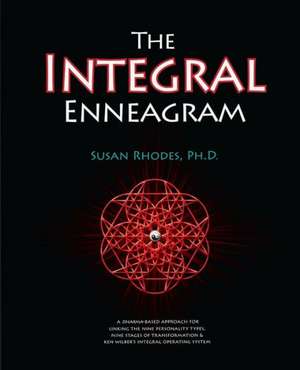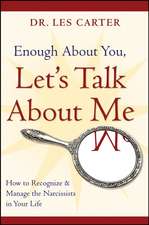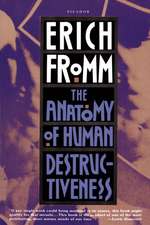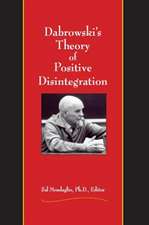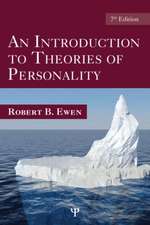The Integral Enneagram: A Dharma-Oriented Approach for Linking the Nine Personality Types, Nine Stages of Transformation & Ken Wilber's Integr
Autor Susan Rhodesen Limba Engleză Paperback – 31 mai 2013
As a reporter for the "The Enneagram Monthly," I've written many articles on the enneagram. From the beginning, I've focused on the assets of the nine types rather than their liabilities--a focus that powerfully informs my first two books, "The Positive Enneagram" and "Archetypes of the Enneagram."
I was attracted to Ken Wilber's Integral Operating System (IOS) because it also emphasizes the positive role played by ego/personality development in transformational work. Wilber has been developing his ideas for 40 years and has published more than 25 books on transformation.
The more I studied IOS and the enneagram, the more I realized the incredible potential each has to inform the other. After writing articles on the two systems for five years, I knew there was enough material for a book--and "The Integral Enneagram" was born.
The book is has three parts:
Part I provides a brief but easy-to-follow description of both systems (the enneagram and IOS). It also introduces the unifying theme of the book: that each of us has a unique calling or "dharma" in life, a calling that is partially revealed by our enneagram type. To discover the "dharma" is to find the path that transforms us through service to life.
Part II describes two ways of working with the enneagram. The " personality enneagram" focuses on the nine personality points of view, each of which represents a unique approach to living. The "process enneagram" portrays the same nine enneagram points as nine stages in a transformational process. The two can be interwoven to create an Integral Enneagram model that can help us see why different kinds of people are attracted to different transformational paths and practices.
Part III integrates the Integral Enneagram model with Wilber's Integral Operating System, to the mutual enhancement of both. It especially highlights the value of a more feminine, embodied approach to transformation, the importance of process (not just progress) in inner work, and how to develop our consciousness in a way that sparks our creativity.
"The Integral Enneagram" is a unique book with an approach not presented elsewhere--an approach that not only supports our individual development but our ability to use whatever we develop to come into union with the greater purposes of life.
Preț: 176.69 lei
Nou
33.81€ • 35.17$ • 27.92£
Carte disponibilă
Livrare economică 25 martie-08 aprilie
Specificații
ISBN-10: 0982479220
Pagini: 364
Dimensiuni: 191 x 235 x 19 mm
Greutate: 0.63 kg
Editura: Geranium Press
Notă biografică
Descriere
As a reporter for the "The Enneagram Monthly," I've written many articles on the enneagram. From the beginning, I've focused on the assets of the nine types rather than their liabilities--a focus that powerfully informs my first two books, "The Positive Enneagram" and "Archetypes of the Enneagram."
I was attracted to Ken Wilber's Integral Operating System (IOS) because it also emphasizes the positive role played by ego/personality development in transformational work. Wilber has been developing his ideas for 40 years and has published more than 25 books on transformation.
The more I studied IOS and the enneagram, the more I realized the incredible potential each has to inform the other. After writing articles on the two systems for five years, I knew there was enough material for a book--and "The Integral Enneagram" was born.
The book is has three parts:
Part I provides a brief but easy-to-follow description of both systems (the enneagram and IOS). It also introduces the unifying theme of the book: that each of us has a unique calling or "dharma" in life, a calling that is partially revealed by our enneagram type. To discover the "dharma" is to find the path that transforms us through service to life.
Part II describes two ways of working with the enneagram. The " personality enneagram" focuses on the nine personality points of view, each of which represents a unique approach to living. The "process enneagram" portrays the same nine enneagram points as nine stages in a transformational process. The two can be interwoven to create an Integral Enneagram model that can help us see why different kinds of people are attracted to different transformational paths and practices.
Part III integrates the Integral Enneagram model with Wilber's Integral Operating System, to the mutual enhancement of both. It especially highlights the value of a more feminine, embodied approach to transformation, the importance of process (not just progress) in inner work, and how to develop our consciousness in a way that sparks our creativity.
"The Integral Enneagram" is a unique book with an approach not presented elsewhere--an approach that not only supports our individual development but our ability to use whatever we develop to come into union with the greater purposes of life.
